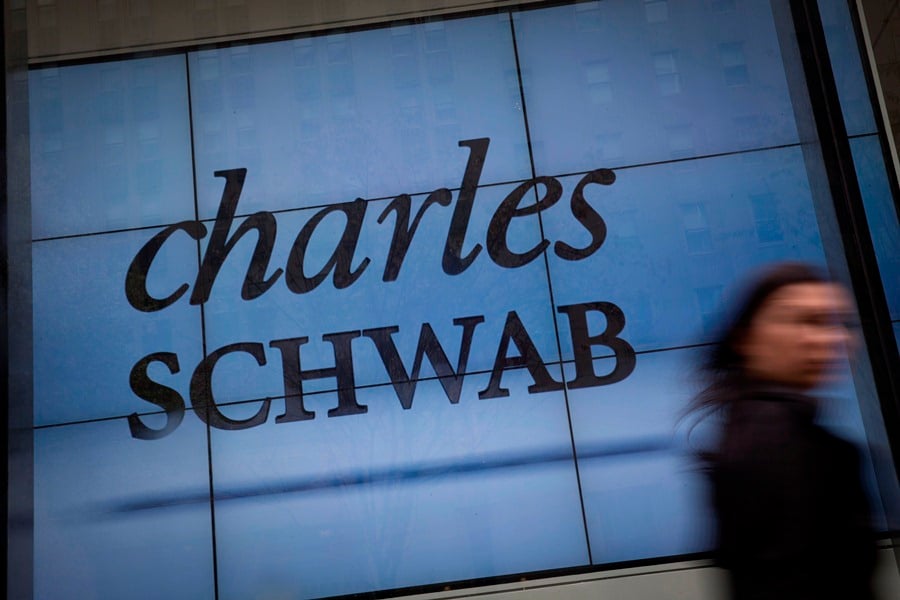

Charles Schwab Corp. said it will take a $200 million charge in the second quarter related to a Securities and Exchange Commission probe of its robo-adviser platform.
The compliance inquiry relates to past disclosures around the firm’s Schwab Intelligent Portfolios product, according to a regulatory filing Friday. The company said it’s been cooperating with the SEC and its ultimate liability may differ from the amount it’s earmarking now.
The SEC filed its first enforcement actions against robo-advisers in December 2018, accusing Wealthfront Advisers and another firm of making false statements about investment products and publishing misleading advertisements.
Wealthfront, which had more than $11 billion in client assets under management at the time, agreed to pay a $250,000 penalty without admitting or denying the findings.
Robo-advisers, which typically select low-cost exchange-traded funds for investors based on their risk tolerance and automatically rebalance the portfolios, have become increasingly popular across Wall Street, with Goldman Sachs Group Inc. rolling out such a product earlier this year. On its website, Schwab predicts assets managed by robo-advisers will grow to $460 billion next year, from $47.3 billion in 2015.
While the SEC has signaled it’s more focused on cases against robo-advisers, it’s brought relatively few cases. In one last month, the agency said it settled claims against a Canadian robo-adviser, Emperor Investments Inc., after the firm agreed to pay $25,000 over allegations it posted misleading performance data on its website.
The SEC didn’t immediately respond to an email about the Schwab case sent to its press office outside of normal business hours.
Shares of the company, which have gained 36% this year, fell 1.7% to $72.34 at 9:44 a.m. in New York.
Schwab said it had $64 billion in client assets in its robo-adviser product at the end of March. The firm has more than $7 trillion in client assets across 32 million active brokerage accounts.
Under U.S. securities rules, firms that offer advice to clients digitally through algorithms are required to make the same kind of disclosures as those whose representatives make suggestions to clients over the phone or in person. The agency put out guidance in February 2017 that detailed how its rules apply to the fast-growing industry, reminding firms to be careful not to mislead clients and ensure their disclosures are accurate and internal compliance programs are effective.
SEC Chair Gary Gensler, who took over the regulator in April, has signaled that he wants the agency to hold robo-advisers to the same standards as other investment firms.
“Technology is always changing the face of finance,” Gensler said last month during City & Financial Global’s London City Week event. “But our core principles stay the same: protecting investors, facilitating capital formation for individuals and companies and maintaining fair, orderly and efficient markets between them.”

New joint research by T. Rowe Price, MIT, and Stanford University finds more diverse asset allocations among older participants.

With its asset pipeline bursting past $13 billion, Farther is looking to build more momentum with three new managing directors.

A Department of Labor proposal to scrap a regulatory provision under ERISA could create uncertainty for fiduciaries, the trade association argues.

"We continue to feel confident about our ability to capture 90%," LPL CEO Rich Steinmeier told analysts during the firm's 2nd quarter earnings call.

It's the mega-RIA firm's third $1B+ acquisition in just three months.
Orion's Tom Wilson on delivering coordinated, high-touch service in a world where returns alone no longer set you apart.
Barely a decade old, registered index-linked annuities have quickly surged in popularity, thanks to their unique blend of protection and growth potential—an appealing option for investors looking to chart a steadier course through today's choppy market waters, says Myles Lambert, Brighthouse Financial.
